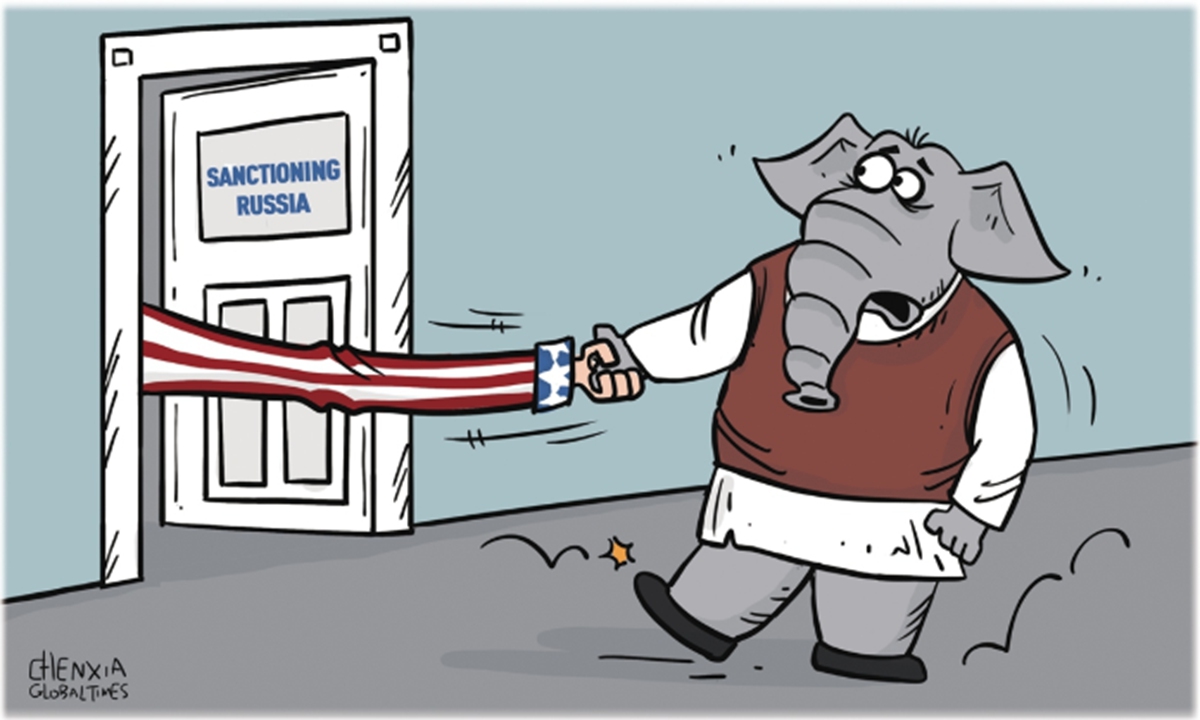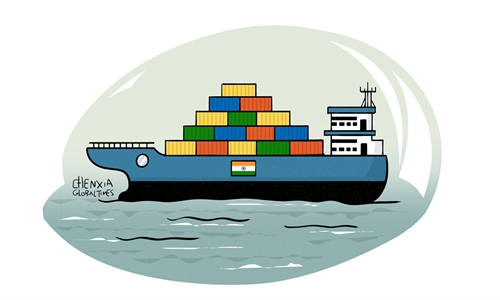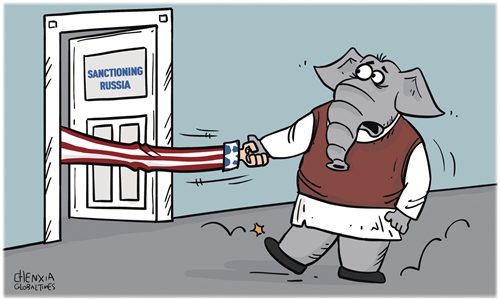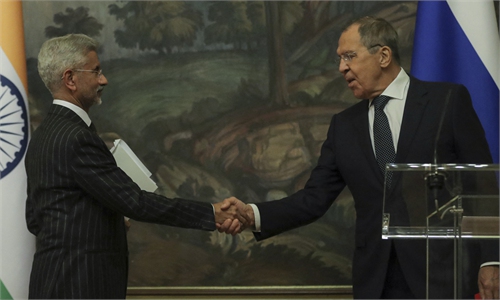
Illustration: Chen Xia/GT
The Ukraine war has now gone on for nine months, with no end in sight. There are strong deeply entrenched domestic constituencies in India that continue to support closer relations with Russia. A glimpse of this was provided in early November by a New Delhi-based think tank, titled "The ORF Foreign Policy Survey 2022: India @75 and the World." The organization surveyed 5,000 young Indians across India who declared their overwhelming support for partnership with Moscow. Indian youth could have been the most suspect category for favoring the West, but results of this survey only allude to Russia's deep roots in India.
Most of Western nations have been busy in attempting to ensure India's course correction. But this has only made New Delhi all the firmer about its "strategic autonomy" that historically defines the central axis of India's foreign policy which has since moved from nonalignment, to multi-alignments, meaning seeking to build partnerships in as many sectors with as many nations as possible. The West's bid to recruit India, therefore, remains at best work in progress with constantly changing cost/benefit matrix and its interpretations.
It is, however, pertinent to underline the extraordinary changes that have occurred from both sides. Just as India's stance of neutrality on Ukraine war has become increasingly proactive to protecting established norms of inter-state behavior, the West has shifted from condescension to patient nudging, even wooing, revealing their reluctant appreciation of India.
But is the West likely to succeed in weaning India away from Russia?
Since the beginning of the Ukraine war, the semantics of India's proactive neutrality had moved from showing concern, to expressing regret, to deploring the situation. This was followed by India urging parties to show respect for UN Charter, international law, national sovereignty, territorial integrality in that order. Did this mean India has been distancing itself from Russia? Or, has India even accelerated the pace of its post-1990s diversification?
On April 5, using the strongest words ever, India chose to "condemn" the killings of civilians in Ukraine's Bucha city as it supported UN Secretary General Antonio Guterres's demand for an independent probe. But India still fell short of joining the Western condemnation of Russia. Next, on August 24 , India, which previously abstained from all UN resolutions on Ukraine, for the first time, opposed Russia's attempt to invoke procedural grounds to disallow President Zelensky's online address to the UN Security Council.
The most noticeable inflection point came during the October 15-16 Samarkand summit of Shanghai Cooperation Organisation. In a bilateral meeting with President Vladimir Putin, Prime Minister Narendra Modi underlined "that today's era is not the era of war."
These comments by Prime Minister Modi, of "this era not be the era of war" has since resonated in multiple speeches of Indian and several world leaders. Most recently these words found a place in the November 15-16 G20 Bali Leaders' Declaration. The absence of President Vladimir Putin at the meeting and silence of China and India on mention of Ukraine "war" four times in this Declaration has since triggered interesting insinuations in Western media.
Last week India's representative at the UN Security Council urged it to take cognizance of the "killing of civilians and devastation of civilian infrastructure" becoming a "legitimate target of war." What does this assertive position mean for the future of India-Russia relations?
Sanctions on Russia threaten to cripple the economy, forewarning erosion of its competitive edge that requires sustained defense research and development. Other nations have already starting working on this assumption. France — that has come to be India's second largest defense supplier after Russia — is busy making efforts to replace Russia. In middle of the Ukraine war, French Defense Minister, Sebastien Lecornu visited India. But even when India's diversification of defense procurement since 1990s has resulted in reducing Russia's share to less than 50 percent, it still remains a far cry for France to replace Russia.
It will be equally challenging for France to ramp up its defense production to meet massive demand of a military heavyweight like India. Then there are other competitors like the United States, Israel, South Korea supplies that have also enhanced their defense supplies to India. Their weapons systems have also earned visibility for their Ukraine operations and they too remain keen to cultivate India.
Even in a hypothetical situation of alternate suppliers being available to India, Russia since late the 1950s has been so deeply embedded into India's defense establishment's culture, thinking and its operational doctrines and training etc. that it is not going to be an easy choice for India to quickly switch to new suppliers.
The author is professor of diplomacy and disarmament at Jawaharlal Nehru University (New Delhi) currently visiting professor with University of British Columbia (Vancouver). opinion@globaltimes.com.cn



